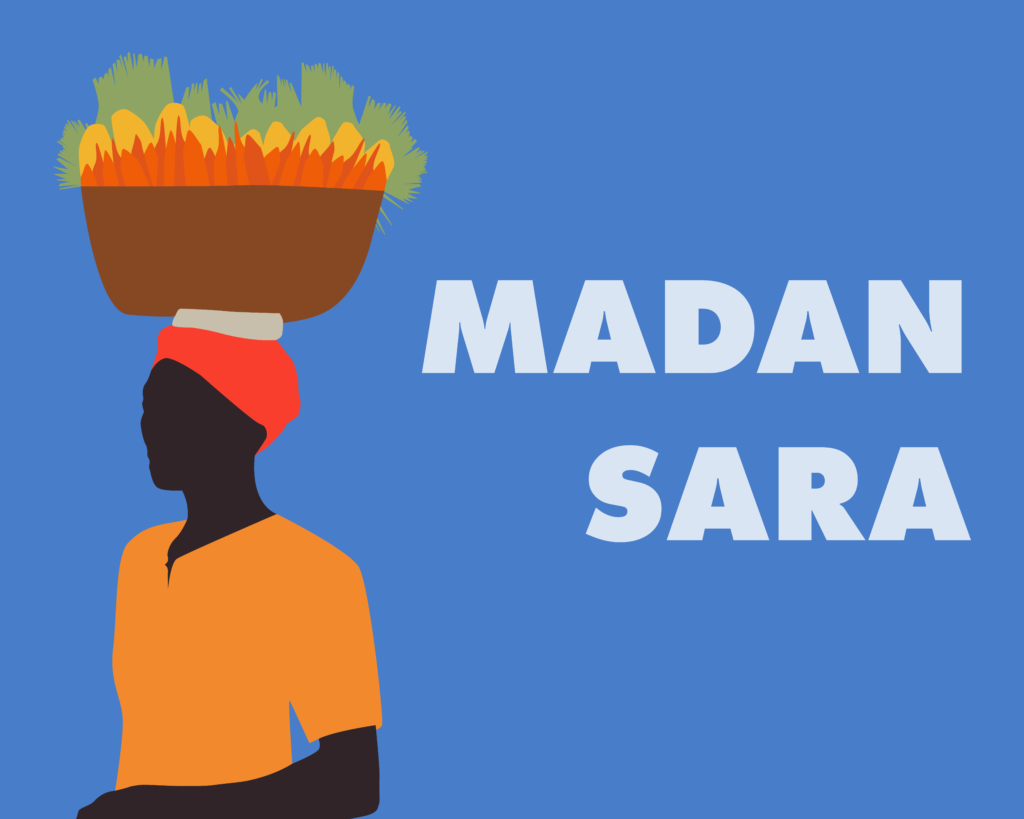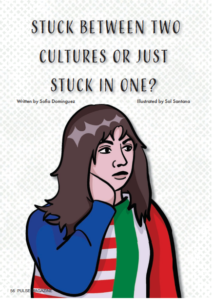Madan Sara: The heart of Haiti

In the cities of Haiti, a group of women work day and night to sustain their families. Haitian women encounter multiple obstacles in their daily lives. But that has not stopped them from becoming the essence of Haiti’s economy.
To depict these women’s struggles and contributions to Haiti’s economy, Etant Dupain, a Haitian filmmaker, created a documentary called Madan Sara. Madan Sara are the group of women in Haiti whose tireless efforts created an informal food network that allows them to buy, sell and distribute food throughout Haiti. However, according to The Miami Hurricane, the Madan Sara are women who “hold a nation on their shoulders as they fight against the struggles of their world. They are micro-entrepreneurs that hold a nation’s economy together. They work communally, sharing the profits and protecting each other from the dangers of political instability and social oppression, from everyday extortion, from debt-collectors, from government-plotted fires of markets, from rape and theft.” Madan Sara are the heart of the country’s economy due to their hard work to ensure that food reaches the markets.
Dupain, whose mother was a Madan Sara, promised to make a documentary that would explore the Madan Sara network in 2015. “Working as a journalist, I wanted to see what I can do … that I can add to the conversation about economic development in Haiti,” said Dupain. The documentary was released in Oct. 2020. For Dupain, his documentary is “also a way to introduce … outsiders to Haiti … with something that is authentic, and also to tell the story of an incredible work by Haitian women.”
Madan Sara women typically work 12-to-16-hour days to provide for their families and their country. In other circumstances, they will travel for days to reach their destination. His experience growing up with a hardworking mother motivated him to start the production of this documentary.
“Learning the value of the hard work that they are doing, learning about … how the economy functions, how businesses are done,” said Dupain. “These are some of the basic things that you learn as … a kid of Madan Sara.”
Aside from the long and arduous work hours, a common problem among Haitians and Madan Sara is market burning, leaving goods and products damaged, further collapsing Haiti’s economy. Dupain wanted to create something to have his audience to face the frequent issue to his audience.
“When you have a sector that is already underfunded, they don’t have access to insurance, they don’t have access to good credit and then you have fires… I think it’s something we need to address,” said Dupain. “Living in a country with limited protection and social services is the first big challenge for Madan Sara. They have to fight to build their own systems.”
Dupain’s film emphasizes is that despite the lack in protection and funding, there is no economy with the Madan Sara. Haiti relies on the Madan Sara to maintain a balanced network of managing goods and markets across the country.
During the Coronavirus pandemic, Haiti went into lockdown, shutting down its airports, seaports and its borders. During this time, the Madan Sara has kept Haiti’s economy from facing greater turmoil.
“Most of the time, they are the breadwinner in the family, so they have to raise their kids while doing all this work. It’s very challenging. It’s very tough. It’s a lot,” Dupain said.
The film took about five and half years to complete and it has a length of 50 minutes and 28 seconds. He said that this film is a tool to educate people both in Haiti and abroad. Dupain wants to showcase the importance of women to Haiti’s economy and for the community to learn what they can do to make the group more efficient, such as give resources to Madan Sara and try to provide a safer working environment for them. Over time, Dupain plans to continue adding more scenes and information to the film.
“Celebrate the work of Haitian women who work across the country … also share the story with the world,” said Dupain. “Share awareness on the difficulties that exist and also share the accomplishment because as a son of Madan Sara, I think it’s a story worth telling.”
The film has been out since Oct. 25 of last year and since then the film has been shown across the US and in Haiti. It also won ‘Best Short Documentary’ in the Los Angeles’ Independent Film Festival. Since its debut, the film has received feedback from viewers learning newfound information about Haiti.
“People hear about Haiti in the news, sometimes about earthquakes or protests, but they never really have access to learn different stories coming out of Haiti,” Dupain said.
The film also made an impact on Haitians in and out of Haiti. Many did not know their mother was a Madan Sara prior to watching the documentary.
“I feel like the movie is having a very positive impact and I’m very proud of the work that we’ve done.”
The University of Pennsylvania will stream Dupain’s film in honor of International Women’s Day on March 8. For more information about the film and helping the Madan Sara project, visit www.madansarafilm.com








